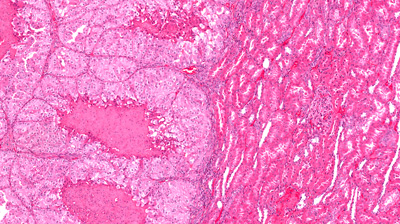FDA approves Opdivo for renal cell carcinoma
Posted: 24 November 2015 |
The announcement marks the approval of the first and only PD-1 inhibitor to deliver significant overall survival in patients with advanced renal cell carcinoma…


The US Food and Drug Administration (FDA) has approved Bristol-Myers Squibb’s Opdivo (nivolumab) injection for the treatment of patients with advanced renal cell carcinoma (RCC) who have received prior anti-angiogenic therapy.


The announcement marks the approval of the first and only PD-1 inhibitor to deliver significant overall survival (OS) in patients with advanced RCC who have received prior anti-angiogenic therapy. In the CheckMate -025 trial, patients treated with Opdivo achieved a median OS of 25 months versus 19.6 months for everolimus, a current standard of care (SOC) in this patient population.
“Opdivo provides an important therapy option for patients with renal cell carcinoma,” said Richard Pazdur, M.D., director of the Office of Hematology and Oncology Products in the FDA’s Center for Drug Evaluation and Research. “It is one of few therapies that have demonstrated the ability to extend patients’ survival in treating this disease.”
Opdivo works by targeting the cellular pathway known as PD-1/PD-L1 (proteins found on the body’s immune cells and some cancer cells). By blocking this pathway, Opdivo may help the body’s immune system fight cancer cells. Opdivo is intended for use in renal cell carcinoma in patients who have received prior anti-angiogenic therapy (treatments that interfere with the blood vessels that contribute to the growth of cancerous cells).
Fifth approval for Opdivo
“This is the fifth approval for Opdivo across three distinct tumour types. This latest approval reflects our commitment to delivering on our promise to provide cancer patients with a potential for long-term survival,” said Francis Cuss, MB BChir, FRCP, executive vice president and chief scientific officer at Bristol-Myers Squibb. “We believe our pioneering approach to Immuno-Oncology is driving change in how cancer may be treated.”
“As an Immuno-Oncology agent that works directly with the body’s immune system,Opdivo offers a new approach for physicians to use when treating patients with advanced renal cell carcinoma who have received prior anti-angiogenic therapy,” continued Cuss. “For the first time, these patients have a PD-1 inhibitor treatment option, which has the potential to provide an unprecedented survival advantage compared to a standard of care.”
Related organisations
Bristol-Myers Squibb Company, Food and Drug Administration (FDA)




